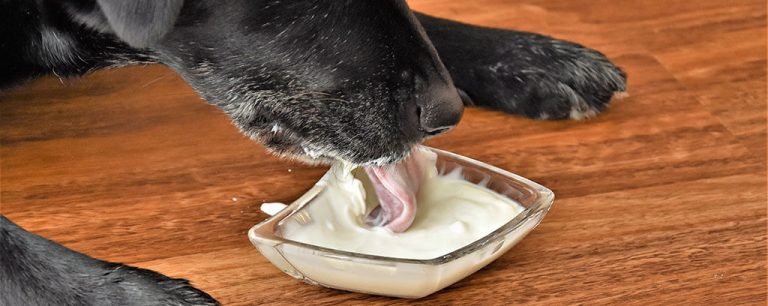Key Takeaways:
- When served correctly, yogurt can be a beneficial addition to a dog’s diet.
- It’s important to choose the right type of yogurt for your pup.
- Monitor your dog for any digestive reactions or allergies.
- Consult with a veterinarian for personalized advice.
Why Yogurt?
Yogurt, a staple in many human diets, is rich in probiotics — beneficial bacteria that help maintain a healthy microflora balance in the gut. This is where the magic happens for both humans and canines alike. Probiotics support digestive health by bolstering the gut’s good bacteria, which, in turn, can enhance nutrient absorption and bolster immune function. For dogs, in particular, yogurt can act as a dietary supplement that aids digestion, helping alleviate issues such as gas, diarrhea, and inflammatory bowel diseases. This fermented dairy product also contains the enzyme lactase, assisting in the digestion of lactose, making it more tolerable for dogs compared to other dairy products that lack this enzyme support.
Choosing the Right Yogurt for Your Dog
Selecting the right type of yogurt is paramount for reaping its health benefits while ensuring your pet’s safety. As a rule of thumb, prioritize plain, unsweetened, low-fat, or fat-free yogurt when choosing a treat for your furry friend. High sugar content and artificial sweeteners, especially xylitol, can harm dogs. Careful label reading is crucial to avoid these harmful ingredients. Consider Greek yogurt for dogs as an option; it typically contains fewer carbohydrates and more protein than regular yogurt, making it a healthy choice for maintaining your dog’s muscle mass and energy levels without overloading calories.
Health Benefits of Yogurt for Dogs
Beyond aiding digestion, yogurt can offer multiple health benefits for your canine companion. Regular consumption can lead to improved gut health, which is intrinsically linked to enhanced overall well-being in dogs. A healthy gut can mean a strengthened immune system that fights common illnesses and infections. Furthermore, yogurt’s probiotic content has been associated with better skin health and a shinier coat. Studies suggest probiotics can improve skin barrier function, sealing in moisture and protecting against environmental irritants, which means fewer skin irritations and a visible reduction in dandruff.
Potential Risks and Considerations
While yogurt can be beneficial, it’s not without potential risks, and care should be taken when introducing it to your dog’s diet. Some dogs may be lactose intolerant, as their systems may not produce enough lactase to break down lactose in dairy products, potentially leading to digestive upset, including diarrhea or vomiting. It’s important to introduce yogurt gradually into your dog’s diet and watch carefully for any adverse reactions during the initial tries. Similarly, while rare, some dogs may have allergies to certain proteins found in dairy products, highlighting the importance of vigilance and knowledge of your pet’s health history.
How to Serve Yogurt to Your Dog
Serving yogurt to your canine friend can be a delightful way to incorporate variety and nutritional value into their meals. You might start by mixing a small spoonful into your dog’s regular kibble to create a creamy texture or offer it as a standalone treat on a hot day, like a semi-frozen yogurt nugget. A couple of tablespoons can suffice for larger dogs, whereas toy breeds might only need a teaspoon to start. The key is moderation — too much of a good thing can lead to excess calories and potential digestive disturbances. Pay attention to your dog’s weight and adjust servings to maintain a balanced diet.
Observing Your Dog’s Reaction
After introducing yogurt into your dog’s diet, monitoring is key to ensuring it’s a suitable addition. Pay close attention to changes such as improved coat shininess, regular bowels, and general energy levels, all of which are positive indicators. However, watch for any signs of digestive discomfort or allergic reactions. If your dog exhibits unusual lethargy, vomiting, or diarrhea after consuming yogurt, it might indicate lactose intolerance or a sensitivity to the yogurt itself, warranting a discussion with your vet.
Consulting Your Vet
Before making any significant changes to your dog’s diet, including introducing yogurt, it’s wise to consult with a veterinarian. They can provide tailored advice based on your dog’s breed, size, health status, and dietary needs. Your vet can also help determine the appropriate portion sizes and offer alternatives if your dog is intolerant. For more insight, consider accessing resources from veterinary associations, such as the American Veterinary Medical Association, which offers comprehensive guides and expert advice on canine nutrition.
In conclusion, when approached mindfully, yogurt can be a delicious and nutritious dog treat, offering many health benefits. You can tap into this versatile snack’s full potential by selecting the right type, serving it appropriately, and monitoring your dog’s reaction. As always, when in doubt, lean on professional guidance to ensure the health and happiness of your furry family member.

